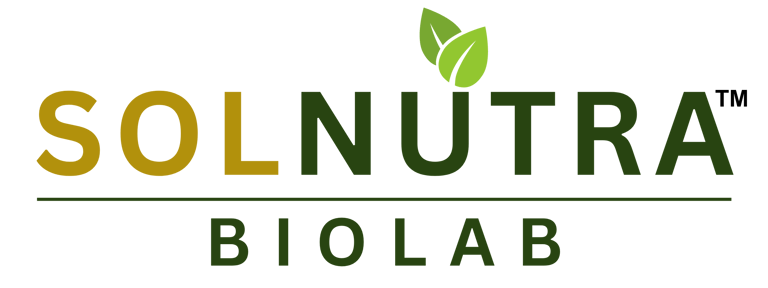Seasonal Allergies: Natural Supports That Work (And Those That Don’t)
5 min read


Introduction to Seasonal Allergies
Seasonal allergies, often referred to as hay fever or allergic rhinitis, occur when the immune system overreacts to certain allergens present in the environment, particularly during specific times of the year. These allergens are typically associated with seasonal changes that induce a rise in pollen from trees, grasses, and weeds, which can significantly impact individuals' daily lives.
Common symptoms of seasonal allergies include sneezing, nasal congestion, runny nose, itchy eyes, and fatigue. These manifestations can range from mild discomfort to severe impediments to normal activities, making effective management crucial for those affected. The prevalence of seasonal allergies is notable, as millions of people worldwide experience these symptoms each year, especially during spring and fall when pollen counts are typically higher.
For many individuals, seasonal changes signal the onset of allergy season, characterized by an increase in airborne particles that initiate their reactions. It is essential to recognize that not all individuals react the same way to allergens; some may experience severe symptoms, while others remain largely unaffected. Recognizing specific triggers, such as the flowering of certain plants or increased wind activity, helps individuals anticipate and prepare for allergy seasons. This awareness underscores the necessity of addressing allergy symptoms effectively.
As awareness of seasonal allergies continues to grow, so does the interest in exploring various management strategies that extend beyond conventional pharmaceutical solutions. This shift reflects a broader trend toward natural remedies, which many individuals prefer due to their perceived safety and efficacy. Understanding the landscape of seasonal allergies and the potential for alternative therapeutic strategies lays the groundwork for a comprehensive discussion on effective natural supports.
Effective Natural Supports for Seasonal Allergies
Seasonal allergies can lead to a variety of uncomfortable symptoms, prompting many individuals to seek natural supports. Among these, quercetin stands out due to its antihistamine properties. This flavonoid, found in foods like onions and apples, has been supported by studies indicating its ability to stabilize mast cells and inhibit the release of histamines. A typical dosage ranges from 500 mg to 1,000 mg daily, and it is usually deemed safe. However, those with certain allergies should consult their healthcare provider, as it's always prudent to check for individual sensitivities.
Another promising option is stinging nettle, which has long been used in herbal medicine. Research indicates that it may reduce the symptoms of hay fever, possibly due to its ability to block histamine receptors. A common recommended dosage is 300 mg to 600 mg of a standardized extract, taken in capsule form or as a tea. Although generally considered safe, it may interact with certain medications, necessitating a discussion with a healthcare professional for anyone on prescriptions.
Bromelain, an enzyme derived from pineapples, has gained attention as a potential remedy for reducing inflammation associated with allergies. Studies suggest that bromelain may help alleviate nasal congestion and sinusitis. Appropriate dosages typically range from 200 mg to 400 mg taken two to three times a day, although it may cause gastrointestinal discomfort in some individuals. Ideally, bromelain should be taken on an empty stomach for optimal absorption.
Lastly, vitamin D is crucial for immune health and may play a role in moderating allergic reactions. Research suggests that adequate vitamin D levels can help reduce the severity of allergy symptoms. Supplements of 1,000 to 2,000 IU per day are generally recommended, though sun exposure can also be a natural source. As always, those unsure of their vitamin D status or supplementation needs should seek guidance from a healthcare provider.
Regulatory Aspects and Product Labeling
In both Canada and the United States, natural health products (NHPs) are subject to specific regulations designed to ensure consumer safety and product efficacy. In Canada, these products are regulated by Health Canada under the Natural Health Products Regulations, requiring that all NHPs receive a product license before they can be marketed. This license includes a Natural Product Number (NPN), indicating that the product has been evaluated for safety, efficacy, and quality.
In the United States, natural products fall under the Dietary Supplement Health and Education Act (DSHEA), which permits manufacturers to market dietary supplements without prior approval from the Food and Drug Administration (FDA). However, it is crucial that these products are labeled accurately and do not make unsubstantiated health claims. The FDA permits certain claims related to structure/function but regulates claims concerning disease treatment or prevention to ensure public safety.
For consumers, understanding product labels is essential when evaluating NHPs, particularly those targeting seasonal allergies. Look for key labels such as "NPN" in Canada or "FDA Registered" in the U.S., which can help establish credibility. Additionally, labels should include clear dosage instructions, ingredient lists, and potential allergen information. Consumers must be vigilant about ambiguous terms like "natural" or "herbal," as these may not necessarily reflect the product's effectiveness or safety.
Pitfalls arise when products make vague claims or when the labeling is misleading. Always scrutinize the label for third-party certifications, which can indicate independent testing for quality and safety. When selecting a natural health product for seasonal allergies, consider consulting healthcare professionals or utilizing resources such as the Canadian Health Food Association or the U.S. National Institutes of Health to identify reputable brands. By combining regulatory awareness with diligent product research, consumers can make more informed choices and effectively manage their seasonal allergies.
Why Choose Solnutra for Your Allergy Formulations
When it comes to addressing seasonal allergies, the choice of natural formulations is pivotal in ensuring both efficacy and safety. Solnutra stands out as a leading provider of formulation services that are meticulously designed with your needs in mind. Their comprehensive compliance review process guarantees that every product not only adheres to stringent regulatory standards but also delivers the desired results for consumers seeking effective relief from allergy symptoms.
Solnutra's commitment to quality is evident in their rigorous sourcing of high-quality ingredients. Each formulation is crafted using scientifically-backed components, chosen for their proven effectiveness in alleviating allergy-related discomfort. By collaborating with Solnutra, businesses can access a wealth of expertise that facilitates the development of natural allergy solutions that customers can trust. This level of dedication to quality assurance ensures that every product they create is safe for consumption and meets the expectations of both the market and regulatory bodies.
Moreover, Solnutra is deeply invested in product innovation. Their team continually researches and develops new solutions to address the evolving needs of those suffering from seasonal allergies. This forward-thinking approach allows them to stay ahead of industry trends while providing clients with formulations that resonate with the growing demand for natural health products.
In addition to their specialization in allergy relief, Solnutra encourages engagement by inviting potential partners and consumers to request sample formulations. This initiative serves not only as a testament to their confidence in their products but also fosters a collaborative relationship with their clients. As you consider the formulation process for seasonal allergy solutions, look no further than Solnutra – a brand dedicated to excellence in health and wellness formulation. Explore the possibilities today and discover how Solnutra can enhance your natural product offerings.
